- Expand Federal Transportation Grant Opportunities
- Rebuilding American Infrastructure with Sustainability and Equity Grants (RAISE)
- Port Infrastructure Development Program Grants
- Bus & Bus Facilities Competitive Grants
- National Infrastructure Project Assistance (MEGA)
- Infrastructure for Rebuilding America Grant Program (INFRA)
- Safe Streets and Roads for All
- Rural Surface Transportation Program (RURAL)
- Reconnecting Communities and Neighborhoods Program (RCN)
- Bridge Investment Program (BIP)
- Railroad Crossing Elimination Program (RCE)
- Strengthening Mobility & Revolutionizing Transportation (SMART)
- See Who Has Won Awards in Nebraska
- Low or No Emissions Program
- Promoting Resilient Operations for Transformative, Efficient, and Cost-Saving Transportation Grants (PROTECT)
- Expand Thriving Communities Program (TCP) NOFO
- Regional Infrastructure Accelerators (RIA) Program
- Rural and Tribal Assistance Pilot Program
- Transit-Oriented Development (TOD) Pilot Program
- Airport Terminal Program (ATP)
- Nationally Significant Federal Lands and Tribal Projects (NSFLTP) Program
- Thriving Communities Program (TCP) Call for Letters
- Congestion Relief Program (CRP)
- Active Transportation Infrastructure Investment Program (ATIIP)
Thriving Communities Program (TCP) NOFO
About:
The Thriving Communities Program (TCP) is designed to provide technical assistance, planning, and capacity building support to advance a pipeline of transportation and community revitalization activities that increase mobility, reduce pollution from transportation sources, expand affordable transportation and housing options, improve health outcomes, facilitate efficient land use, preserve or expand jobs, and enhance connections to health care, education, and food security to benefit disadvantaged populations and communities.
Fiscal Year (FY) 2023 Notice of Funding Opportunity:
The U.S. Department of Transportation published a Notice of Funding Opportunity (NOFO) for $22 million in grant funding through the Thriving Communities Program on September 12, 2023.
Important Details:
Eligible Applicants
-
State DOT
-
Local gov’t
-
MPOs
-
Regional planning non-profit organizations
-
Federally-recognized Tribes
Communities Eligible for Assistance
- Disproportionate rates of pollution and poor air quality
- Disproportionate human health and environmental effects
- Areas of persistent poverty
- Historically disadvantaged communities
Program Types
-
National Capacity Builder Program (TCP-N)
-
Provide technical assistance, planning, and capacity building support to 15-20 communities located around the country organized into a Community of Practice
-
Co-design tailored scopes of work based on the community’s individual needs
- Facilitate peer learning networks across the communities assigned to their Community of Practice
-
- Regional Pilot Program (TCP-R)
- Funds state and local governments and their agencies, Tribal governments, and regional governments or organizations through cooperative agreements to provide support to communities selected by the applicant that are located within their jurisdiction or service area.
- Enable support of the advancement of transportation opportunities in disadvantaged communities.
- Focus on peer learning across communities in respective state.
Eligible Activities under TCP-R
-
Identify funding opportunities that align with transportation goals in support of regional or statewide plans
-
Support predevelopment planning and scoping of projects that coordinate transportation with other land use, housing, and infrastructure development
-
Build organizational capacity and strengthened relationships between key stakeholders that deepen regional engagement and collaboration, position partners for future funding opportunities, and/or support inclusive planning processes
-
Fund planning and technical assistance activities that reform local land use and zoning policies to align transportation infrastructure investment with equitable community development
-
Establish pooled resources and/or innovative funding tools that increase community investments in transportation, housing, environment, and health
-
Support regional economic and workforce development that promotes local hiring, access to transit, and jobs in high quality industries
-
Activities to support grant writing, project management, and compliance with grant administration requirements
-
Peer-learning, networking, and knowledge sharing on strategies, types of tools, and lessons learned with other communities in the applicant’s state or region
Funding
-
$22M for FY2023
-
TCP-R cooperative agreements $1-2M each
-
No cost share
Deadlines
-
11/28/2023 – Applications Due
Additional Info
- Applications must be submitted via grants.gov
- Applicant must commit to providing support to communities within jurisdiction over a three-year period to plan, develop, and deliver transportation projects that interface with housing, climate, safety, economic development, public health, and other sectors that align with TCP goals.
- Year 1 and 2 – Dedicated to providing targeted support to selected communities, as well as peer learning and exchange activities between these selected communities and others within the region.
- Year 3 – Focus on program evaluation, reporting, transition activities, and developing resources for long-term capacity building.
